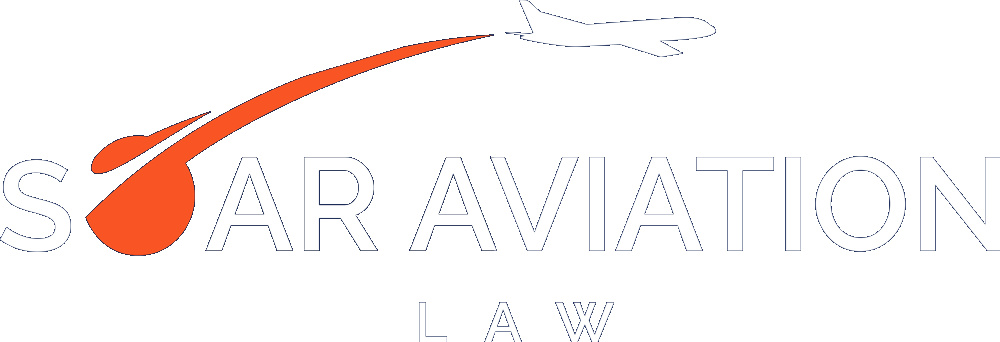
Over the past 12 months I have had a significant increase in calls with jet card holders, membership program participants and fractional owners who have received the upsetting news that their paid and contracted private aviation provider is unable to provide services. Recently we have seen Jet It, AeroVanti, and Set Jet cease operations along with George Jet pausing operations. Moreover, I am aware of additional aviation service providers who have not officially ceased operations but are currently not fulfilling their contractual requirements and are not providing any private aviation services.
Not only do the card holders, members and fractional owners suffer service disruptions and financial losses when these programs fail, but the private aviation industry suffers reputational damage. Support service companies such as fuel providers, maintenance repair centers and catering companies are often left unpaid by the failed programs. I have also seen cases where the charter operators who provide supplemental support for the failed programs are left unpaid.
Unfortunately, it can be very difficult to determine the financial wherewithal of a private company that is not subject to public disclosure requirements. As a result, some professionals in the industry have started to request additional financial information, even from privately held companies, prior to entering into an agreement with the aviation service provider. Until there is more financial transparency, there are still a few things that can be done to protect against loss:
- Prepayment If prepayment for future flights is part of the provider’s business model, is the provider willing to segregate the prepayment amount into a separate account in the name of the customer?
- Aircraft Are the aircraft in the program owned by the company, leased, or chartered on demand? If owned, title searches can be done at a cost of a little over $100, so you can see if any support service providers have filed liens for lack of payment. If aircraft are leased, will the service provider issue letters from the aircraft owners affirming that lease payments are being made in a timely manner. If the program uses on demand charter, can the service provider supply a list of who their main charter suppliers are and a recent letter indicating that the charter operator is paid on time for the services it provides.
- Restrictions Is the program set up to guarantee performance everyday of the year? If so, is that business model sustainable based on the number of customers and size of the guaranteed service area? Said another way, is the program providing guaranteed access to aircraft all over the country on a fleet too small to support such a venture?
- Variable Costs Is the program set up so that variable costs such as fuel and insurance are passed onto the customer or is the program set up to be all inclusive, regardless of variable costs? If the program is all-inclusive, is that sustainable?
- Leadership and Longevity Who are the leaders of the company? What is their understanding of private aviation and what is their reputation in the industry? How long has the company been in business? How long has the current leadership been in place? Is the company profitable?
- Service Contracts For the aircraft being operated by the service provider, are there maintenance programs on the engines, APU, airframe etc. and if so, can the program provider furnish a letter that such programs are current and in good standing?
- Financial Backing Who is providing financial support to the company and will that provider give a letter confirming any recently published financial support announcements? We have seen instances where providers have claimed to have lined up additional financing only to then learn the financing was never approved and distributed. Another question to ask is, if the provider owns all of the aircraft and new aircraft are on order, where is the capital coming from to make the payments necessary for the new aircraft orders?
- Lawsuits Is there any history of or pending litigation between the provider and the provider’s customers or suppliers? If so, those lawsuits may provide valuable information in selecting a provider and the court filings are public information. Will the provider represent that there is no pending litigation with customers or suppliers?
- Product Selection Does the aircraft type offered make sense? Is the aircraft type selected built to fly the number of hours that the program provider plans to use them for? How often will the aircraft selected have to be down for major inspections and how often do those major inspections occur. Have the operating costs been properly calculated based on the planned utilization of the aircraft? Is there enough infrastructure available for the maintenance that will be needed on the aircraft?
- Margin Does the offer seem too good to be true? Is it hard to understand how the service provider will make any money? Is the offer significantly lower than any other provider? All of these are red flags that should not be ignored.
Before sending a significant amount of money to any service provider, I recommend considering the ten items above. If you can’t get comfortable with these ten items, then perhaps a different program should be considered. If you do not have time to investigate the offer, then call a consultant or an aviation attorney and have them do the investigation for you. Recently, a client called me on a collections case for a charter broker who had not paid the charter operator. As soon as the client said the name, I knew we were in trouble. I think we will see more programs fail in 2024. Business models that were created at a peak of an aviation business cycle (such as during Covid), often do not have enough margin built into them to survive when we are not at a peak. With a bit of diligence on the part of consumers, failing companies (or those likely to fail) can be avoided.
